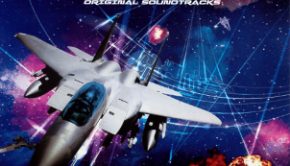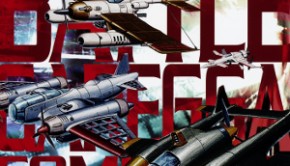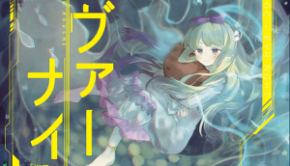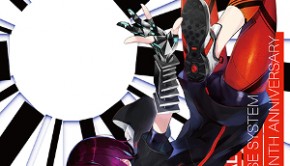Kokuga Original Soundtrack
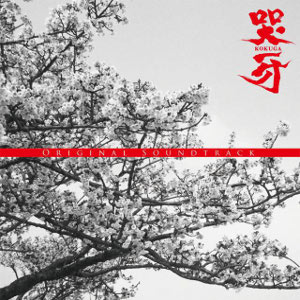 |
Album Title: Kokuga Original Soundtrack |
| Record Label: G.rev |
|
| Catalog No.: GVSD-2001 |
|
| Release Date: September 27, 2012 |
|
| Purchase: Buy at ebten |
Overview
KOKUGA is a 3DS top down shmup game developed by G.rev. Composed by Manabu Namiki in one of his first post-Basiscape projects, it is a departure from his most recent soundtracks for Black Rock Shooter and Dodonpachi Saidaioujou, although some influence from his work is present on this soundtrack. In addition, there are also bonus remixes by Jaelyn Nisperos, Kohta Takahashi, and Yasuhisa Watanabe. How is the overall soundtrack and how does it compare to some of his other shooter works?
Body
In contrast to the majority of his shooter scores, Namiki’s Kokuga definitely features a main theme that is presented in a variety of styles. The first, “Brushstroke,” provides a successful exposition of the very warm and poignant melody. Although there are some slight synth issues with some of the strings, the piece is quite beautiful and really shows Namiki’s capabilities to compose a softer tune. This theme is visited on the soundtrack a few more times. “Germination,” “Visitor,” and “Ego” are energetic synthy rock renditions and, although they share a similar sound, they all have their moments that separate them from one another. “Wailing Fang” is an heroic orchestral version with some slight electronic influence. Lastly, in the best variation of the main theme, “Karma” conjures up the images of “Brushstroke” by offering a more peaceful, melancholic approach complete with boys choir, music, and piano.
Of course, with any shmup game, there are plenty of stage themes to go along and Namiki brings plenty of variety with his efforts on this soundtrack, for better or worse. “Warfront” is a frenetic piece that focuses on chaotic runs that bookend slower tempo synth sections reminiscent of the select themes used in some of the CAVE shmups. Though it fits the game, it isn’t as melodic as Namiki’s typical fare and hence may be a bit disappointing to some. “Phantom” also takes a more unique approach by providing a more ambient and peaceful soundscape with its various synth tones and acoustic guitar. While it isn’t as melodically-focused as some of the other themes on the soundtrack, I feel that Namiki was able to create an engaging and fitting theme nonetheless. “Illusion” is another more ambient tracke that harbors more of a darker environment due to the tense accompaniment and eerie synthesizer and percussion elements used in the theme, but I find it to be one of the weaker themes on a stand-alone level.
“Stronghold” is definitely one of the stronger stage themes on the album. Opening quite peacefully, the bass guitar and ethereal synthesizers work together to create an engaging atmosphere that draws the listener in. Fans of his work on Black Rock Shooter will feel right at home with this one. “Traveling on Foot” is also one of the more melodically focused stage themes. Also incorporating the main theme of the game, it manages to bring a nice synth rock vibe to the soundtrack. For those who prefer Namiki’s more melodic shmup stage themes, this one will be a welcome shift from the more ambient ones. That said, “Dust Storm That Darkens the Sky” is probably the star of the stage themes. It is another theme that focuses more on melody rather than atmosphere. The melody is quite catchy and the synth rock focus definitely gives it a suitably bittersweet heroic tone.
There are also two boss themes featured in the game. The first, “Formidable Enemy,” serves as the normal boss theme. It’s a chaotic theme focusing on industrial tones, some orchestral backing, and pounding percussion. The funky B section is also something unexpected, but definitely capture the energy of an intense shmup encounter. The final boss theme, “Resolution” definitely is a much more foreboding affair with militaristic percussion and some energetic synth work that really manages to create a nice energy. The surprising show-stealer, however, is the B section with its stunningly beautiful and powerful melody, accentuated by its beautiful, almost classically-inspired piano section. This is definitely something that I’d love to hear Namiki compose more of, as it is quite a departure from his normal final boss themes.
The three bonus remixes all feature arrangements of the main theme of the game and each brings their own interesting twist to the remix. “Kokuga -cybertropolic blitz mix-,” by Jaelyn Nisperos, better known as chibi-tech, provides a funky twist, particular in the accompaniment; her use of FM synth there really manages to bring a nice retro vibe to the piece. “Wailing Fang -Kohta Mix-”is another interesting take. With this remix, Kohta Takahashi mixes a bit of a drum n’ bass style with a more synthesized approach, rather than utilize the more orchestral nature of the original, although at times, that influence is still present at times. Of the remixes, this one is probably my favorite. Lastly, “KOKUGA -Type-N Addition,” by Yasuhisa Watanabe, fuses together more ethereal synthesizer tones mixed with orchestral sections. In the end, it’s an interesting remix that incorporates a range of styles and tempos. From the more ethereal and ambient sections, the more jazz influenced synth sections, and the orchestral hits, it is definitely a tune that doesn’t get stale, but at times, it does feel like it lacks cohesion.
Summary
In the end, the KOKUGA Original Soundtrack is a bit of a departure from Namiki’s typical shmup scores with its strong main theme yet more atmospheric stage pieces. At the same time, Namiki manages to show that he is capable of providing a range of styles, even if they aren’t typically found in games of this type. He was able to craft a very strong main theme that is incorporated nicely throughout the soundtrack, and offered a variety of styles ranging from more typical shmup fare to more ambient and ominous tones. While not perfect, it is still an enjoyable listen from start to finish and any fan of Namiki will surely find something to appreciate.
Do you agree with the review and score? Let us know in the comments below!
3.5
Posted on May 31, 2014 by Don Kotowski. Last modified on May 31, 2014.

